I recently listened to a podcast about rulebreakers. According to social scientist Francesca Gino, “Rebels are people who break rules that should be broken. They break rules that hold them and others back, and their way of rule breaking is constructive rather than destructive. It creates positive change.”
I first started believing in constructive rule breaking and out-of-the-box thinking several years ago when one of my dear friends started her own small flower and veggie farm in Oregon’s Willamette Valley. Starting a farm was my friend’s longtime dream. She worked hard and saved money for this goal, and then one day she found the right property and just went for it. During a period when many of our friends were going to graduate school, getting married, or working in more traditional jobs, she was, in a sense, a bit of a rule breaker.
I say all of this to explain why Pickett Street’s latest listing is so exciting to me. The property is a blueberry farm north of Seattle. Below is more information about why it’s such a perfect spot for fulfilling big, perhaps slightly off-the-beaten path dreams. If you’re ready to find out more, reach out to Pickett Street at info@pickettstreet.com ((425) 502-5397).
1. Blueberries are known as Washington’s “blue gold.”
Pacific Northwest blueberries are kind of a big deal. These amazing little flavor and antioxidant bursts are native to North America. Only ten states grow 98% of the country’s total commercial blueberries; Oregon and Washington are two of these states.
Even more exciting, Washington grows the most blueberries out of any other state in the country, producing over 96 million pounds of blueberries per year. Back in 2007, the Seattle Times called blueberries Washington State’s blue gold, due to the crop’s value in the national and global market. In 2017, the state’s 130 million pounds of blueberries were worth around $150 million.
2. Agritourism is growing in Washington.
In addition to being part of the Pacific Northwest blueberry wonderland, Pickett Street’s newest listing is perfect for agritourism. This term refers to the practice of hosting tourists on one’s farm. Agrotourism properties often feature bed and breakfasts and other overnight accomodations. Wineries, U-pick farms, and dude ranches are all examples of agritourism.
While it’s been around for awhile, agritourism across the U.S. is on the rise. In Washington State, farm-direct consumer sales amounted to over $50 million in 2012, ranking Washington 7th in the nation for agritourism. Through optimizing all of the property’s potential, agritourism creates more revenue for the farm. The “trickle-down” economic benefits are tangible: over 60% of farm stands or stores hire two to four employees.
Agritourism is also often connected to the slow food movement, which values local, seasonal food that is seasonably grown and which, in my opinion, just might save the world.
If your curiosity is piqued, or if you’re ready to dive into to your lifelong dream of living closer to the land, the first step is to reach out to Pickett Street. The team is full of innovative, experienced professionals who excel in out-of-the-box thinking.
Get in touch with us at info@pickettstreet.com #425-502-5397
*Check out the Blueberry Farm listing on our website HERE.
*Link to YouTube video of Farm HERE.
Live Laugh Love Farm
